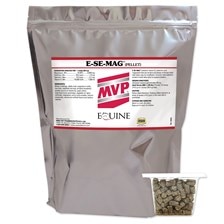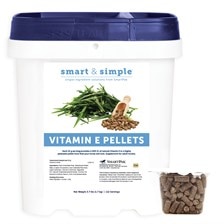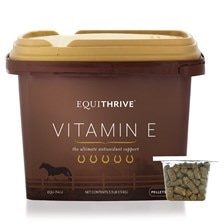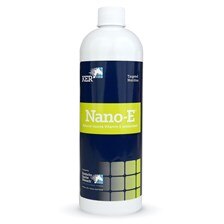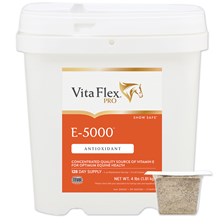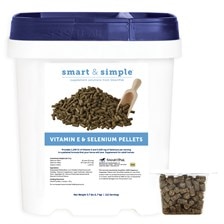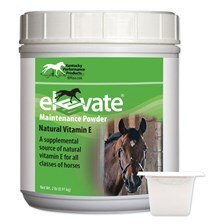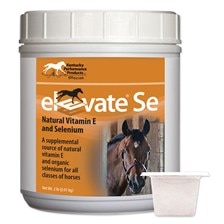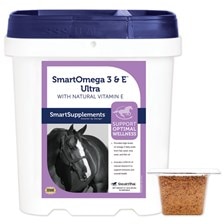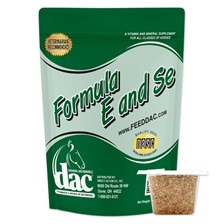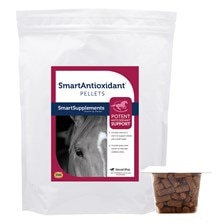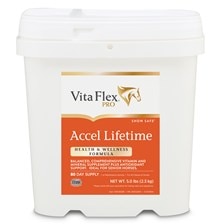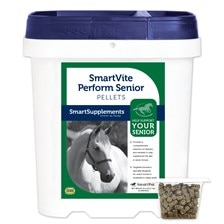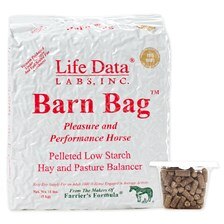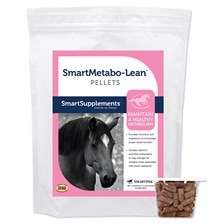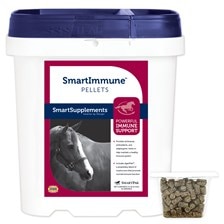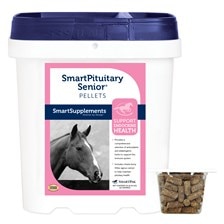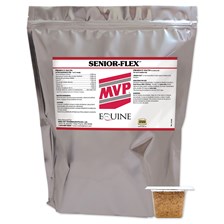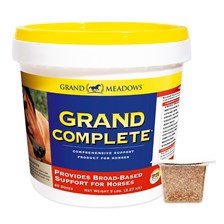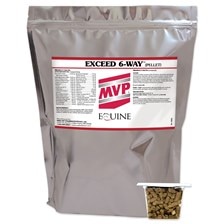Vitamin E For Horses
What it is & who it’s for: Vitamin E is most recognized for its role in cells and tissues as an antioxidant for horses. It is a fat-soluble vitamin not made by the body, meaning it must be completely provided in the horse's diet.
Source and bioavailability: Found in high amounts in fresh pasture, vitamin E levels begin to decline the moment forage is cut for hay. Therefore, any horse without access to grass – regardless of its activity level or health status -- should be supplemented. Although synthetic vitamin E (dl-alpha-tocopherol) is absorbed by the horse, natural vitamin E (d-alpha-tocopherol) has been shown to be more biologically active.
Serving size: According to the most current NRC Nutrient Requirements of Horses, the maintenance vitamin E requirement is 1 international unit (IU) per kilogram of body weight per day for adult horses, breeding stallions, and pregnant mares (500IU for a 1,100lb horse) and 2 IU/kg BW for growing horses, lactating mares, and horses beyond moderate work. Veterinarians may prescribe higher levels in the management of certain medical conditions of the muscle and/or nervous systems.
Complementary ingredients: Vitamin E works closely with its antioxidant partners selenium and vitamin C to help protect the body from damaging free radicals generated by exercise, illness, and other sources of oxidative stress.
Toxicity: Vitamin E does not appear to be toxic to horses even at relatively high intakes, and the upper safe diet concentration is set at 1,000 IU/kg dry matter by the NRC, based on observations in other species.
Not sure which supplement is right for your horse? We have compiled comparison charts so that you can compare active ingredient amounts in the Antioxidant category.
